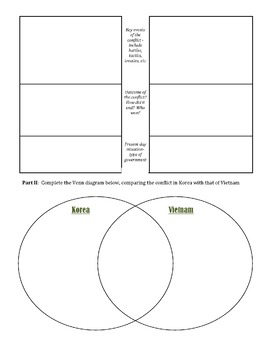

North Korea wanted to stay with its communist government and spread communism throughout the peninsula, but the United States feared communism aggression and the domino theory, so the United States and the United Nation sent troops to South Korea, thus creating a seesaw war. The discrimination will decrease in the following decades, and the 1980s will have influential African Americans like in the 1950s and the Jazz Age. As another decade arrives, there will be tension as the schools integrate races. African Americans changed history through the integration of sports and music.Īfrican Americans/What struggles might this group have in decades to come?Īlthough the baby boomers enjoyed rhythm and blues as well as Rock and Roll, their parents are concerned of the music roots. African Americans' music were broadcasted on radios. They knew that they would be returning home to face discrimination.Īfrican Americans/What progress did they make in the postwar period?Īfrican Americans founded a kind of music, known as rhythm and blues. They also had jobs during World War II.Īfrican Americans/What challenges did they face at the end of the war? As more women become educated and determined, society will soon have to cross out the idealistic homemaker.Īfrican Americans/What did they gain in World War II?Īfrican Americans gained the equal privilege to fight. They will speak to revert back to those days when they could take occupations of men. Women will probably fight, or protest, to alter their public image. Women/What struggles might this group have in the decades to come? Betty found no one to publish her article because it went against the ideal belief of women, so she published her novel, The Feminine Mystique.

Betty, a homemaker, mother, and article writer, interviewed Smith College's alumni, who reported dissatisfaction with their roles. Women decided to speak out how they felt about society's standards. Women/What progress did they make in the postwar period? Their ambitions are clouded by society's expectations. The posters recruiting women to help during World War II had no purpose in the following decade. Women faced unemployment again as returning veterans take their jobs back.

Women/What challenges did they face at the end of the war? Some who went to college found use of it as they take men's occupations temporarily, such as mending aircraft or running businesses. Women gained the right to exercise their knowledge. Women/What did they gain in World War II? Some veterans will be traumatized by the experiences during WWII and the wars after that. There will be war again in the following decades for the veterans and their children. Veterans/What struggles might this group have in the decades to come? Returning veterans made families, thus causing the baby boom, which lasted from 1946-1964. Most settled in the new suburban Levittowns. Veterans were educated and thanks to the GI Bill, could start businesses or buy homes with low-interest rates. Veterans/What progress did they make for their postwar period? They also needed homes for their new families, and the cities were too crowded. Not many could afford televisions immediately after the war. Veterans who lived far from major cities has no channel or one channel to watch on televisions in 1951. Returning veterans came back to take their former jobs, and along the war, they had to set society's homemaking standards as the women were unwilling to give up their World War II occupations. Veterans/what challenges did they face at the end of the war? Veterans came back to America with benefits of the GI Bill. They gained the opportunity to travel overseas to fight, and to country untouched by destruction. Veterans/What did they gain in World War II?


 0 kommentar(er)
0 kommentar(er)
